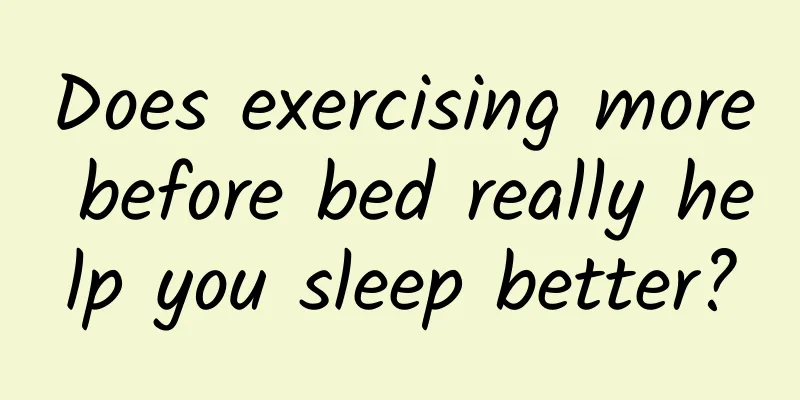Health misunderstandings, "medicine" science popularization - sleeping pills, how much do you know

|
As the pace of society accelerates and life pressure increases, people often suffer from insomnia. According to statistics from the Chinese Sleep Society, the incidence of insomnia among adults in my country is as high as 38.2%, which means that more than 300 million Chinese people have sleep disorders[1]. Insomnia refers to difficulty falling asleep, waking up easily or too early during sleep, poor sleep quality, and significantly reduced sleep time. Some patients may even stay awake all night [2]. Insomnia is a major enemy of human health. It can affect normal work and life, lead to mental weakness, psychological disorders, induce heart and brain diseases, and cause accidents. Occasional insomnia does not need to be overly worried, but when insomnia persists and has affected the body, mind, work, and study, it needs to be treated with sedatives and hypnotics [3]. Many patients have misunderstandings about the use of sleeping pills, are afraid of sleeping pills, and worry that they will become stupid after taking the medicine, which makes insomnia not receive timely treatment. In fact, under the guidance of doctors and pharmacists, correctly understanding the role of sleeping pills and using sleeping pills reasonably can greatly avoid the adverse reactions of sleeping pills, effectively improve sleep quality, and improve the overall quality of life. Sedative hypnotics, also known as sleeping pills, are a class of drugs that have an inhibitory effect on the central nervous system, can induce sleep, prolong sleep time, and improve insomnia symptoms. According to the different chemical structures of drugs, sedative hypnotics are usually divided into three categories. The first category is barbiturates, such as phenobarbital (Lumina), thiopental sodium, etc. This type of drug has a large adverse reaction, the risk of respiratory depression, a small range of safety, easy to accumulate poisoning, and obvious potential addiction. It is now less used. The second category is benzodiazepines, also called tranquilizers, such as diazepam (Valium), estazolam (Sulopentam), alprazolam (Jiajing Ting), clonazepam, lorazepam, nitrazepam, oxazepam, etc. This type of drug is a widely used type of sleeping pill. It is safe and effective for short-term use, but if used for a long time, it is easy to form drug dependence. The third category is non-benzodiazepines, such as zopiclone, eszopiclone, zolpidem, zaleplon, etc. Because the first letter of these drugs is Z, they are referred to as "Z-drugs" [4]. This type of drug is currently recommended as the first-line drug for the treatment of insomnia. It has the characteristics of rapid onset, short half-life, and less daytime sleepiness. Its tolerance, addictiveness, and respiratory inhibition are all lower than those of diazepam, and its side effects are relatively smaller. It is suitable for the short-term treatment of transient, occasional insomnia or chronic insomnia. Sleeping pills are psychotropic drugs. my country divides psychotropic drugs into two categories based on the degree of dependence and health hazards caused by their use. Except for chloral hydrate, the rest of the sleeping pills are now included in the second category of psychotropic drugs. They can only be purchased and used by doctors with special prescriptions, and the prescriptions generally cannot exceed 7 days of use. In special circumstances, the prescription dosage can be appropriately extended, but the doctor must indicate the reason. As the incidence of insomnia increases, the number of people taking sedative hypnotics is also increasing[5]. The selection of sedative hypnotics is also very particular. The appropriate sleeping pill should be selected based on the physiological function of sleep, the degree of insomnia, individual requirements, the age of the user and other factors. For those who have difficulty falling asleep, ultra-short-acting drugs with a short half-life should be used[6], such as zopiclone and zolpidem; for insomniacs with persistent difficulty sleeping and frequent nightmares, medium-acting drugs such as estazolam and alprazolam can be used; for patients with short sleep time, easy early awakening, obvious anxiety symptoms during the day and who can tolerate sedation the next day, long-acting sleeping pills such as diazepam and clonazepam can be used. When taking sleeping pills, pay attention to the following points: 1. Do not drink alcohol. Do not drink alcohol while taking sleeping pills. Alcohol initially has an excitatory effect on the central nervous system, which will offset the sedative and hypnotic effects of sleeping pills. Later, it has an inhibitory effect, which can produce a double inhibitory effect with sleeping pills, causing the patient to experience serious consequences such as drowsiness, slowed breathing, slowed heart rate, low blood pressure, shock, and even death[7]. 2. Single, low-dose medication. Generally, it is recommended to use one sleeping pill to treat insomnia, and try not to use two or more sleeping pills at the same time. In principle, sleeping pills should be used starting with a low dose and then gradually increased to achieve satisfactory sleep with the minimum dose [8]. Patients may develop drug tolerance after long-term use of sedatives and sleeping pills. If the drug effect is not ideal, it should be considered whether the dosage is insufficient or the medication is inappropriate. If necessary, the drug dosage or treatment plan should be adjusted in a timely manner. 3. Take before bed. The onset time of sleeping pills is generally 15-60 minutes. Patients should take them before bedtime or when they have trouble falling asleep. At the same time, they should drink less water, reduce the number of times they get up, and ensure adequate sleep. 4. Sit down for a while after waking up. Drowsiness and muscle weakness are common side effects of sleeping pills. When you get up the next day after taking sleeping pills, you should sit in bed for a while before getting out of bed to avoid accidents such as falls. This is especially true for the elderly, who are more likely to experience these adverse reactions due to slower drug metabolism. Some patients may experience adverse reactions such as drowsiness, dizziness, decreased reaction and concentration the next day. Therefore, it is not advisable to drive a vehicle or work at heights while taking the pills. 5. Short-term use. Do not use sleeping pills if they can be replaced by other drugs; do not use sleeping pills for a long time if they can be used for a short period of time to prevent drug dependence. Short-acting sleeping pills should not be used continuously for more than 2 weeks, and long-acting sleeping pills should not be used continuously for more than 3 months. 6. Patients may develop drug tolerance if they use sleeping pills for a long time. If they find that the drug effect is not ideal, it may be due to insufficient dosage or inappropriate medication. They should consult a doctor in time to adjust the drug dosage or treatment plan. 7. Do not stop taking the medication suddenly. Patients who have been using sleeping pills for a long time or taking large doses may experience withdrawal reactions if they stop taking the medication suddenly, resulting in worse sleep quality, anxiety, headache, sweating, etc., and sometimes relapse of certain mental illnesses. It is best to obtain the doctor's consent and guidance before reducing the medication, and proceed step by step until the medication is completely stopped. 8. Use with caution. Analgesics, general anesthetics, etc. can enhance the inhibitory effect of sleeping pills on the central nervous system, so be cautious when using these drugs together. 9. Patients with liver and kidney damage should use it with caution. Patients with liver and kidney damage should reduce the dosage if they need to use sleeping pills and use them under the guidance of a doctor. It is best to check the liver and kidney blood count every 3 months during medication. 10. People with respiratory dysfunction, acute angle-closure glaucoma and myasthenia gravis should not use sleeping pills. Finally, if you have any questions or feel uncomfortable during medication, please go to a regular hospital or clinic in time and consult a professional doctor or pharmacist. References: [1] Lin Hong. It is not difficult to use sleeping pills properly[J]. Public Health, 2023(03):66-67. [2] Jiang Yonghui. Rational use of sedatives and hypnotics[J]. Heilongjiang Science and Technology Information, 2013(20):59. [3] Jin Quan. Rational use of sedatives and hypnotics[J]. Jiangsu Health Care, 2018(04):28-29. [4] Jiang Haifeng, Zhao Min, Liu Tieqiao, et al. Expert opinions on the rational use of sedatives and hypnotics[J]. Chinese Journal of Drug Abuse Prevention and Treatment, 2021, 27(02): 103-106. [5] Zhang Ligang, Li Yu. Sedatives and hypnotics, angels or devils? [J]. Public Health, 2023(06):62-63. [6][8] Wang Yan. Correct selection and use of sedatives and hypnotics[J]. Strait Pharmacy, 2018, 30(03): 209-210. [7] Yan Dinggen. Precautions for taking sedatives and hypnotics[J]. Family Life Guide, 2020(04):268. |
<<: Does oral lichen planus mean "moss" growing in the mouth?
>>: When you open your mouth, you may find a "map" on your tongue. Don't panic, it's...
Recommend
The difference between early pregnancy and menstruation
Many girls are pregnant for the first time and do...
What are the reasons for poor egg development?
If a female friend has problems with poor egg dev...
Female massage nourishes the kidneys and replenishes deficiency
Nourishing the kidneys and replenishing deficienc...
What are the symptoms of not getting pregnant?
According to traditional concepts, women should g...
What to do if vaginal opening hurts during intercourse
Some women have problems with their genitals duri...
Symptoms of intercostal neuralgia in women
Intercostal neuralgia in women is caused by compr...
Are the white jellyfish on the beach poisonous? Why can we eat jellyfish if they are poisonous?
Jellyfish is not only delicious, but also rich in...
Should the elderly get the COVID-19 vaccine? How to get it? One article explains!
Recently, the COVID-19 pandemic remains complex a...
Pregnancy bleeding brown small amount
Pregnant women's bodies will be accompanied b...
Diet after breast cancer surgery: a reasonable diet is crucial
Breast cancer is a relatively common malignant tu...
What is the best way to treat breast hyperplasia?
I believe that many female friends will have such...
Clean and bleeding again after cesarean section
It usually takes a long time for women to recover...
After 36 weeks of pregnancy, the fetus can generally grow in weight per week
The fetus mainly refers to the embryo after the f...
How to quickly relieve acid reflux during pregnancy
Stomach discomfort, acid reflux, vomiting, etc. i...
Why do you lose your appetite when the weather gets hot? Come and unlock your "appetizer"
When it comes to summer, the most painful thing i...









